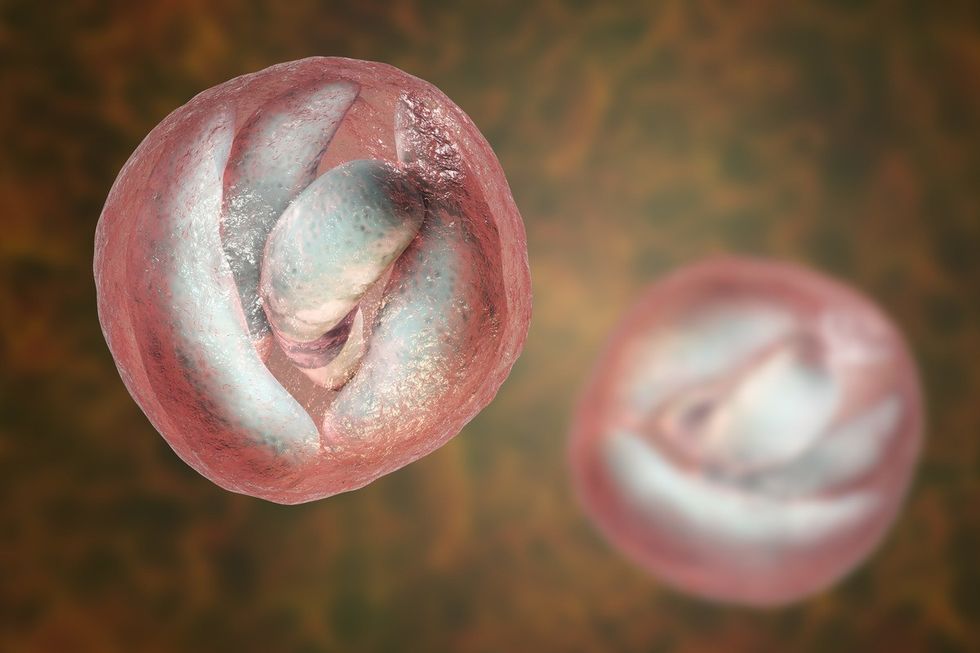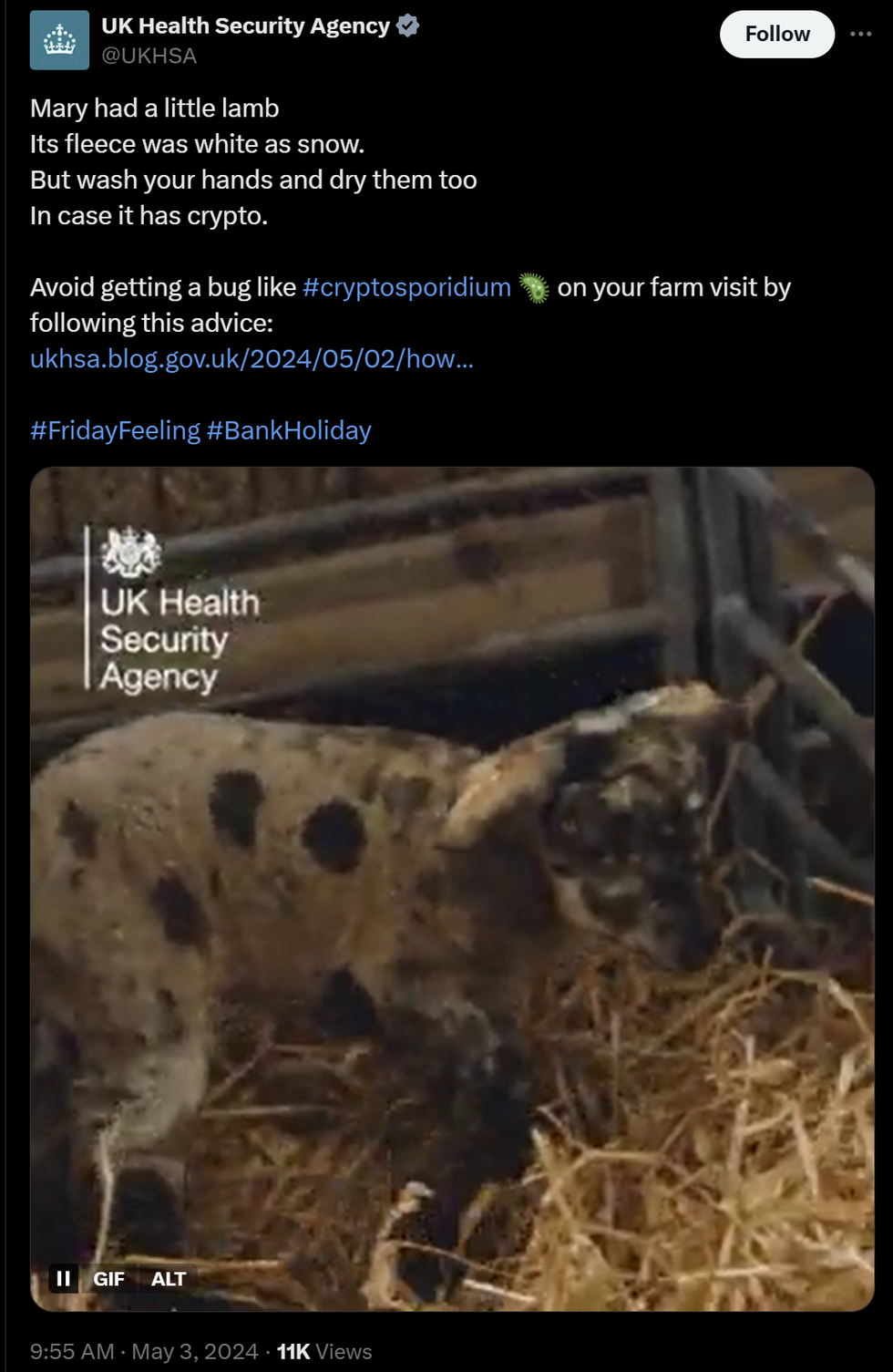More than 770 people struck down with gruesome parasite that causes 'bowel cancer-like' symptoms

The outbreaks primarily affected women aged 18 to 48 and children under 16
Don't Miss
Most Read
Britain has experienced its largest ever outbreak of cryptosporidium, with more than 770 people infected in what health officials describe as an unprecedented spread of the parasitic infection.
Two additional outbreaks have affected a further 700 people since 2023, with dozens requiring hospital treatment.
The clusters of cases have been linked to petting farms offering lamb cuddling experiences, according to the UK Health Security Agency (UKHSA).
The outbreaks primarily affected women aged 18 to 48 and children under 16 who had been in contact with lambs through feeding and cuddling activities.
At least 75 people were hospitalised during the incidents, marking a significant public health concern.
Environmental investigators uncovered serious concerns at the affected farms, including inadequate infection prevention practices.
Issues were found with handwashing facilities, animal health protocols, and staff preparedness.
A particularly worrying discovery was that food was being served in or near areas where animals were being handled.

Britain has experienced its largest ever outbreak of cryptosporidium
|GETTY
The parasite is highly infectious, with infected individuals capable of shedding up to 100 million cryptosporidium germs in a single bowel movement, according to the US Centers for Disease Control and Prevention.
Alarmingly, swallowing just ten of these germs is enough to cause illness, MailOnline has revealed.
The findings were presented at the European Scientific Conference on Applied Infectious Disease Epidemiology in Stockholm.
One teenager severely affected by the outbreak was Sophie Enright, 14, from Hollywood in Worcestershire.
Sophie fell ill on April 9, experiencing diarrhoea, stomach cramps and vomiting six days after visiting a petting farm.
After being diagnosed with cryptosporidium, she lost a stone in weight during her illness.
Her mother Emma Cleverley, 38, expressed concerns about the impact on her daughter's education.
"I was worried her exam results would suffer as she missed so much school," said Cleverley.

The UKHSA issued an update in May
|UKHSA/X
The parasite spreads through contact with infected faeces, which people accidentally ingest after insufficient hand washing.
Transmission can occur through direct contact with infected animals or people, or from contaminated surfaces like farm gates and shoe bottoms.
The risk of infection increases during lambing season and periods of heavy rainfall, when water supplies can become contaminated.
The UKHSA earlier this year highlighted the risks through a creative social media warning: "Mary had a little lamb, its fleece was white as snow. But wash your hands and dry them too in case it has crypto."











